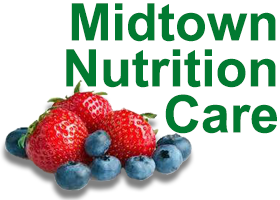KIDNEY STONES
WHAT ARE KIDNEY STONES
Kidney stones are made of crystalized minerals that can accumulate inside your kidneys. The most common types are calcium oxalate stones (80%) and uric acid stones. If the stone becomes large enough it can cause damage to your kidney, create kidney or urinary tract infections, or block the flow of urine, or may pass painfully through your urinary tract.
WHO GETS KIDNEY STONES AND WHY
Nearly 10% of the population will get a stone, men more likely than women. Several factors can increase the risk of stones: a genetic predisposition, excess oxalate intake, and/or insufficient fluid intake.
IF YOU HAVE HAD A STONE OR ARE CONCERNED
1. Drink at least 3 liters (100 ounces) of non-caffeinated fluid per day to increase your urine volume.
2. Reduce your intake of sugary beverages and alcohol.
3. Reduce your sodium intake to 1,500 mg per day: by choosing low-sodium products, not adding table salt, and avoiding packaged, processed foods.
4. Reduce oxalate intake by avoiding the following foods (many are healthy foods but are high in oxalate):
-Berries
-Beans
-Black and green teas
-Black pepper
-Chocolate
-Dates
-Figs
-Kale
-Nuts and seeds
-Rhubarb
-Root vegetables
-Spinach
-Soy products
-Whole grains
5. Include calcium-containing foods such as low-fat dairy products or fortified non-dairy soy-free products.
6. Avoid the use of Vitamin C supplements.
7. If you are concerned about uric acid stones,reduce uric acid intake by limiting portion sizes of meat, fish, poultry and seafood to 3-4 ounces per day.
